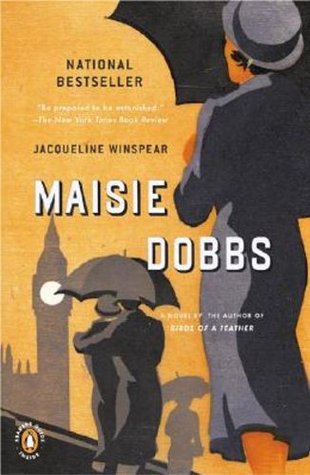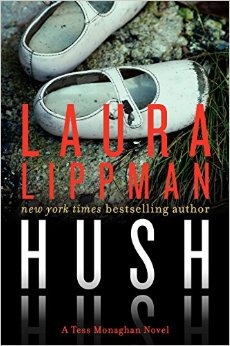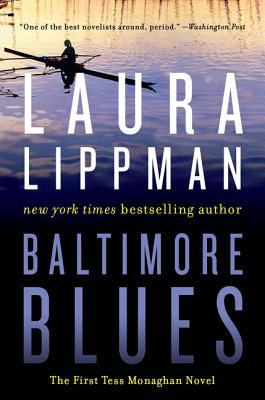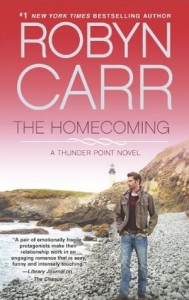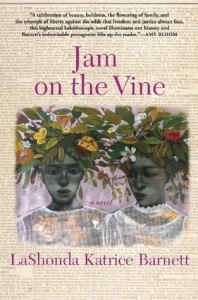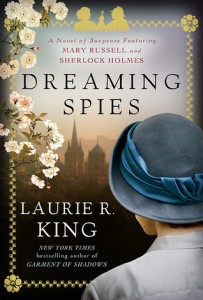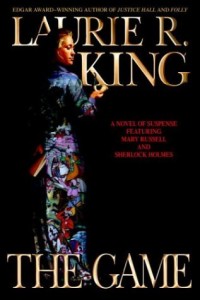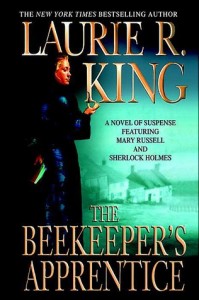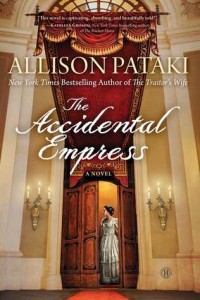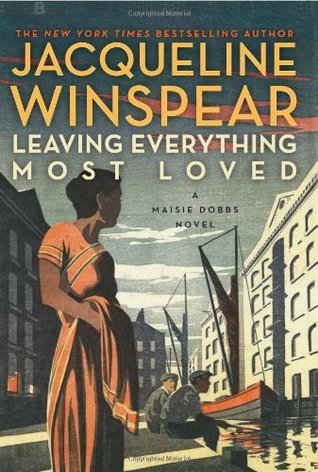 Format read: ebook purchased from Amazon
Format read: ebook purchased from AmazonFormats available: hardcover, paperback, ebook, audiobook
Genre: historical mystery
Series: Maisie Dobbs #10
Length: 336 pages
Publisher: Harper
Date Released: March 26, 2013
Purchasing Info: Author’s Website, Publisher’s Website, Goodreads, Amazon, Barnes & Noble, Kobo, Book Depository
The death of an Indian immigrant leads Maisie Dobbs into a dangerous yet fascinating world and takes her in an unexpected direction in this latest chapter of the New York Times bestselling series “that seems to get better with each entry” (Wall Street Journal).
London, 1933. Two months after the body of an Indian woman named Usha Pramal is found in the brackish water of a South London canal, her brother, newly arrived in England, turns to Maisie Dobbs to find out the truth about her death. Not only has Scotland Yard made no arrests, evidence indicates that they failed to conduct a full and thorough investigation.
Before her death, Usha was staying at an ayah’s hostel alongside Indian women whose British employers turned them out into the street–penniless and far from their homeland–when their services were no longer needed. As Maisie soon learns, Usha was different from the hostel’s other lodgers. But with this discovery comes new danger: another Indian woman who had information about Usha is found murdered before she can talk to Maisie.
As Maisie is pulled deeper into an unfamiliar yet captivating subculture, her investigation becomes clouded by the unfinished business of a previous case as well as a growing desire to see more of the world, following in the footsteps of her former mentor, Maurice Blanche. And there is her lover, James Compton, who gives her an ultimatum she cannot ignore.
Bringing a crucial chapter in the life and times of Maisie Dobbs to a close, Leaving Everything Most Loved marks a pivotal moment in this remarkable series.
My Review:
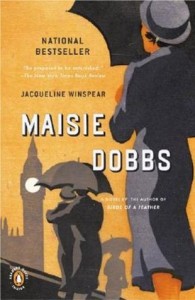 This review is part of the “Month of Maisie Readalong” at TLC Book Tours. For those interested in reviews of the rest of the series, the list is here. Since the readalong starts with the second book in the series, Birds of a Feather, if you want to start your reviewing with Maisie’s introduction in Maisie Dobbs, you can look at my review last week.
This review is part of the “Month of Maisie Readalong” at TLC Book Tours. For those interested in reviews of the rest of the series, the list is here. Since the readalong starts with the second book in the series, Birds of a Feather, if you want to start your reviewing with Maisie’s introduction in Maisie Dobbs, you can look at my review last week.
We’ll be back next week with the review of the most recent book in the series, A Dangerous Place.
While I have not yet had the pleasure (and it will definitely be a pleasure!) of reading all the books in this series, I am very glad that I read the first book, Maisie Dobbs, before Leaving Everything Most Loved. While I don’t yet know all the experiences that have led Maisie to this point, all of the characters in Maisie’s life, all those people who are most loved that she leaves, are introduced at the beginning of the series.
When Leaving starts, Maisie is contemplating two very different futures. Her lover, James Compton, is going to Canada with his employer to work on airplane designs for the war that Churchill sees is coming. In the 1933 setting of this book, Churchill was experiencing his years in the political wilderness, and very few people believed him. History as we know it shows that he was right, but in 1933 he and anyone who believed as he did, were definitely in the minority.
But to go with James to Canada, Maisie will finally need to make up her mind to marry him. And she isn’t ready to give up her independence. Also, James’ employer is a unconscionable blackguard. She and James both know that he is willing to commit murder in the name of his greater good, and that he is too influential to bring to justice. Maisie believes he is right about the upcoming war, but she strongly disapproves of his methods of getting there. Especially since one of her own, her assistant Billy Beale, was almost a victim of his machinations.
Maisie herself is drawn to a different journey. She wants to retrace some of the steps of her late mentor, Maurice Blanche, and travel the world. She particularly wants to see India with her own eyes.
But before she can make a final decision, India comes to her in the person of Usha Pramal, an Indian woman of Maisie’s own age who came to England many years before as a governess in the service of a British family. Usha has been murdered, and her brother is referred to Maisie to help find her killer.
Because Usha was Indian, the local police don’t seem to have tried terribly hard to find her murderer. Maisie will try very hard indeed.
Her quest to find the killer takes her to the many and varied faces of the Anglo-Indian community in London, and all the ways that unprotected young women can be taken advantage of, especially when their skin is brown. At the same time she sees women who have adapted and adopted into the community, in many different but equally successful ways – including an Indian woman who has become a successful part of the Anglo intellectual community in her own right, while maintaining a marvelous marriage of equals with her English husband.
Maisie turns to Chaudhary Jones for both personal and professional advice, as she works her way through the case and her own personal dilemma.
The solution to the case stretches all the way back to India, and into the darkest places of the human heart and mind.
Maisie’s own solution was in her heart all along.
Escape Rating A: At 3 am, I closed the book with a very satisfied sigh. Even without having read the middle books in the series, Leaving successfully closes up a lot of the loose ends in Maisie’s personal and professional life, not always successfully from the perspective of the end being tied up. The first chapter of her life as an independent practitioner in London has come to an end. Her unfinished business is finished, and she has taken care of those she feels responsible for. It is time for Maisie to move on to the next chapter in her life.
Her last two cases turn out to be one case. Neither Maisie nor her mentor believed in coincidence, and that proves true again here. She is looking both for a missing boy and a murderer. While these two things should not be tied into each other, they are. Although not quite the way that one expects.
What carries the story, and what makes this series so interesting, is the character of Maisie Dobbs herself. She begins the series as a costermonger’s daughter, goes into service, receives an excellent if unorthodox education, becomes a nurse in WW1, and finally becomes a private investigator. Not by accident either, but definitely by intention as well as skill.
If her experiences as a nurse resemble Bess Crawford (A Duty to the Dead) and her education is more than a bit like Mary Russell (The Beekeeper’s Apprentice), then her life as an independent woman and private investigator looks more than a bit like Phryne Fisher in Kerry Greenwood’s series beginning with Cocaine Blues. Although Maisie is deliberately nowhere near as flashy as Phryne.
Maisie has assistants who work for her, and one of her major concerns with traveling aboard is that she feels that she must provide for them. Not charity, she wants to make sure they have new jobs before she leaves. She also needs to make sure that her father is comfortable. By the time of this story, Maisie is 36, so her father must be in his late 50s or early 60s at the very least. He is still working, but is not as young as he used to be. Maisie fears leaving him alone, and worries that if she travels too long she may not see him again. Some of her worries are resolved, but some are simply a risk she feels she must take.
She delays a final decision with James. He is very patient, and also tries to understand Maisie’s reluctance. But Maisie makes her decision and her conundrum very real for readers. While women have more independence than they did before the war, there are some rights that she will lose if she marries. Also James worries about the danger of her work, which is quite real. If they marry, he will be in a position to force her to stop.
And of course, there is the problem that she trusts James’ boss about as far as she could throw the man. Maybe less. She would be tying her life and her livelihood to a man who she believes is a cold-blooded killer who is always able to make excuses for himself or have them made for him.
But before she can think about leaving, she still has two cases to solve. In solving the murder of Usha Pramal, she runs into prejudice on every side. And in the case of the missing boy, she finds yet again that the wounds of the late war were not confined to the battlefield, and that the consequences are felt by an ever-widening circle of those who did not serve themselves, but were inextricably linked to those who did.



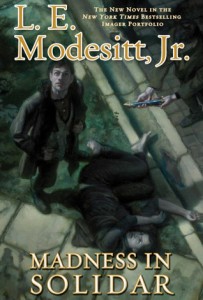 Blog Recap:
Blog Recap: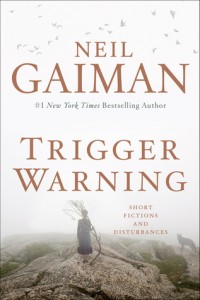 Coming Next Week:
Coming Next Week: